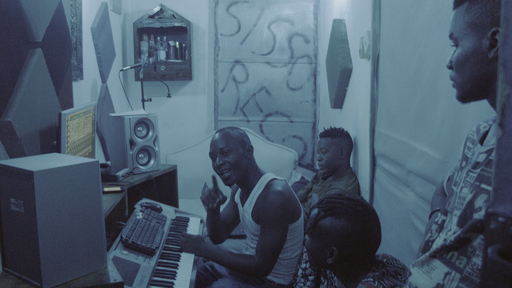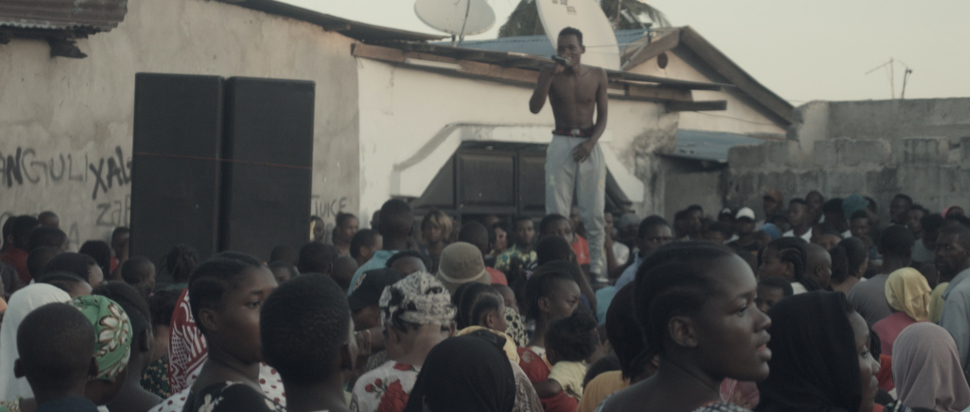Sounds of Singeli: Inside Tanzania's underground
A new youth-driven sound is spilling out from the streets in Tanzania's largest city. At furious speeds as high as 300BPM, Singeli takes no prisoners
A fizzing energy surges through every note of Singeli, a hyperspeed helter-skelter sound erupting out of Tanzania. Driving their looping samples all the way up to 200-300BPM, Singeli producers hold their dancers in a tight grip, rarely allowing them reprieve from the frantic rhythms and rapid cascade of tracks flying from the speakers. It could only ever have come out of Dar es Salaam.
Dar es Salaam is one of the world’s fastest-growing cities, now home to nearly eight million people. Dodoma may be Tanzania’s official capital, but the majority would agree that Dar es Salaam is its most vibrant hub for economics and culture – particularly one slum neighbourhood, Mburahati.
This is the birthplace of Singeli. It was here that Sisso Mohamed first started producing on his laptop, before setting up a studio by his house in 2013. Just up the road is DJ Duke’s label, Pamoja Records. From these two doorsteps, Singeli’s convulsive rhythms and breakneck vocals have flowed into Mburahati’s streets, onto local radio stations like EFM, and out to the rest of Tanzania. Both have made young legends of local artists like MCZA, Bamba Pana, Makaveli, Dogo Noma and Anti Vairas.
“It was seen as ghetto music,” Duke told an NTS documentary. “Now everyone loves Singeli. Now you can play it anywhere. Even our income has increased. Before we just made Singeli because we loved the music.”
Singeli is a singular genre. You might compare it to gabber, but it's more closely aligned with several older Tanzanian sounds. Taarab is one, a traditional music that combines Swahili with influences from India and the Middle East. Also mixed in is jazz, the Casio keyboard-based Mchiriku, and Bongo Flava, which started as a Tanzanian spin on hip-hop in the 1980s.
Taarab and Bongo Flava are both listed as official national music by Baraza la Muziki la Taifa (Swahili for the National Music Council), which, from 1974, supported a wider drive to form a cohesive national identity for post-colonial Tanzania. Policy at this time was guided by Ujamaa – a philosophy that tied decolonisation to African socialism, as directed by then prime minister, Julius Nyerere. Foreign music imports were largely banned under Ujamaa, to give Tanzanian artists the space to create their own culture. But when those rules relaxed, and American hip-hop flooded the country, Bongo Flava was born.
Singeli is Bongo Flava’s natural successor. It speaks to a generation that has grown up not under Ujamaa, but rather encroaching capitalism. It is a distinctively youthful genre – Duke was just 13 when he started making music, and 18 when he founded Pamoja Records. Singeli MCs rattle off bars depicting the minutiae of their young lives (problems at work, problems with school, and problems with the police), which capture the spirit of a new generation coming of age. As one Nyege Nyege spokesperson puts it, “It is the electronic music scene that is most clearly countercultural, a true expression of Tanzanian ghetto youth culture.”
Nyege Nyege has played a central role in Singeli’s international explosion. At the same time that Sisso was opening his music studio, Arlen Dilsizian and Derek Debru were starting a new kind of party in Kampala, Uganda. Unlike other local club nights, which played dancehall, reggae and hip-hop, the fledgling Boutiq Electroniq centred local sounds – like kuduro, coupé-décalé and soukous – alongside Western house and techno. This would become the foundation of Nyege Nyege Tapes, the label now creating a global buzz around East African electronic music.
“Nyege nyege” roughly translates from Lugandan to "the feeling of a sudden uncontrollable urge to dance” – which could have been written about Singeli itself. Dar es Salaam’s thriving scene is an obvious fit for the label. When Dilsizian caught wind of it in 2016, he flew in to track Singeli’s pioneers down.
It took two days of searching the city, but he finally found a friend in a taxi driver, who knew Sisso. Dilsizian arranged to have Sisso’s records shipped out to Nyege Nyege’s base in Kampala, where they would be shaped into the groundbreaking compilation Sounds of Sisso (2017).

Jay Mitta in Sisso Mohamed's studio, credit: Jan Moss
Nyege Nyege continues to champion Singeli on the world stage. In 2021, it released a follow up VA, Sounds of Pamoja, which platforms the scene’s MCs alongside Duke’s dark hip-hop-inspired production. Individual artists have also taken their turn on the label, with Sisso, Bamba Pana, Duke and Jay Mitta all enjoying solo releases.
Those frenzied live sounds that ricochet around Mburahati have gone global as well. Bamba Pana and Makivelli first represented Singeli at Nyege Nyege Festival in 2017, and last year were joined by 17 more Tanzanian artists. Europe is pricking its ears up too, with Unsound, Boiler Room and Berlin’s CTM all throwing their weight behind Singeli artists. With filmmaker Jan Moszumański now putting the finishing touches to a documentary, titled Singeli Movement: Greed for Speed, the future looks bright for Tanzania’s underground.
"Sometimes you get in a rut artistically and think everything’s been done. Then something comes along and proves you wrong," says G Hastings from Young Fathers. "Africa is originality. It is the future and the past, in sync."
“Singeli might be the only African sound system culture with a homegrown rave aesthetic deeply embedded into it, from the way it sounds to the way it's performed,” says a Nyege Nyege spokesperson. “It gets performed in the streets, block parties and concerts, where mosh pits are the order of the day. It might be less polished than other genres, but it's loud, fast and noisy, like no other genre on the continent.”
Our February issue is a Young Fathers takeover – we have an extended interview with the band; Alloysious, Kayus and G share some of their inspirations; the band’s former manager Tim London reflects on their career so far; a chat with theatre maker and director Adura Onashile, and a Q+A with Young Fathers collaborator Callum Easter
Scroll on for more from the Young Fathers takeover, or pick up a print copy from locations across Scotland
